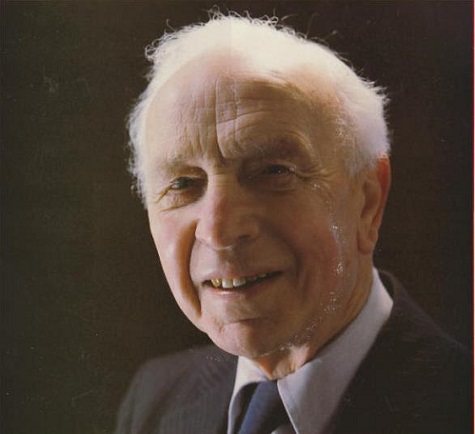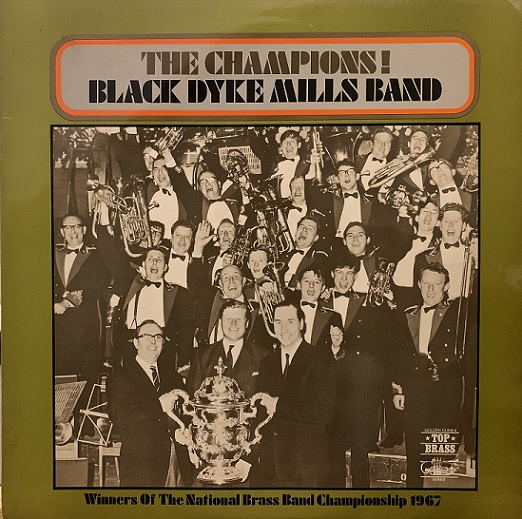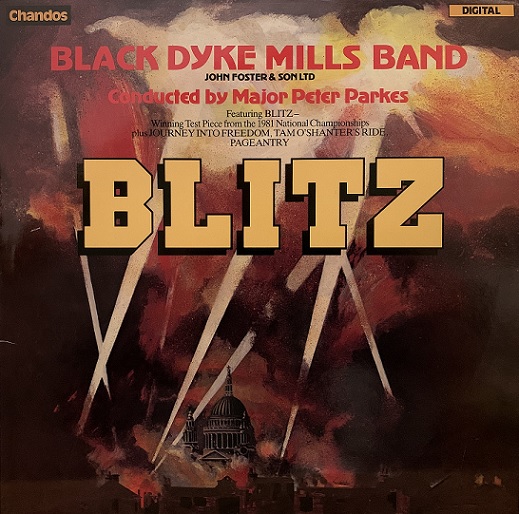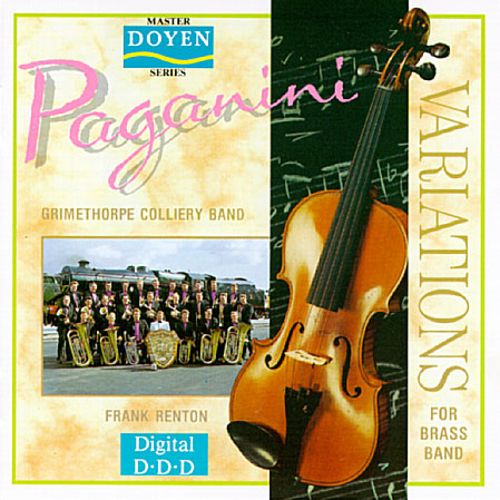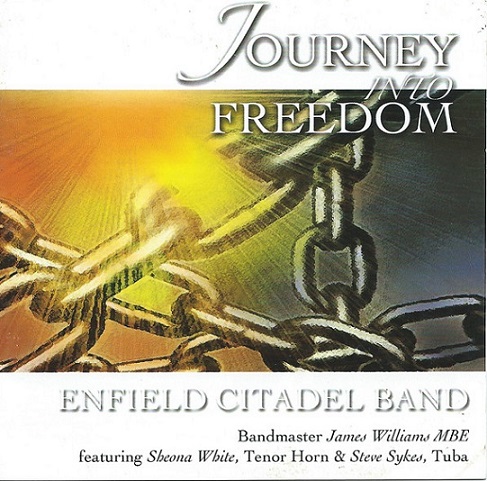
With news that delegates on the forthcoming Black Dyke Virtual Brass Day will be studying as well as performing Eric Ball’s classic test-piece, we’ve trawled the archives to pick five of the best recordings of his masterful composition.
Eric Ball was commissioned to write ‘Journey into Freedom’ for the 1967 National Championships of Great Britain.
The composer was at the peak of his mature creativity; the work coming in a period that also saw ‘High Peak’ (1969), ‘A Kensington Concerto’ (1972) and ‘The Wayfarer’ (1976) used at the Royal Albert Hall.
Rhapsodic in form, but divided into six identifiable thematic sections, it represents the ‘journey’ from short term, soulless materialism to transformative eternal inner freedom; the minor keyed mechanical drive of the opening finally resolved in a majestic ‘love theme’ major key cadence to close – ‘freedom’ of body and mind secured in all its glory.
Rhapsodic in form, but divided into six identifiable thematic sections, it represents the ‘journey’ from short term, soulless materialism to transformative eternal inner freedom; the minor keyed mechanical drive of the opening finally resolved in a majestic ‘love theme’ major key cadence to close – ‘freedom’ of body and mind secured in all its glory.
Others to check
These are the five we’ve picked (in chronological order) - although there a few more that are well worth seeking out, such as a CWS (Manchester) release on the old Fontana label from around 1969 under Alex Mortimer that sounds like an Errol Flynn film score, and a Cory ‘Brass Band Classics’ CD under Robert Childs that has a clinical stamp of contest stage authority.
There are a few others from various sources (including some idiosyncratic Norwegian accounts), but these are the ones that top our listening list.
Black Dyke Mills Band (1968)
The Champions!
Conductors: Geoffrey Brand & Roy Newsome
Golden Guinea ‘Top Brass’ series: GGL 0410
Recorded less than six months after the band’s memorable Albert Hall triumph, Geoffrey Brand leads the Queensbury band in a wonderfully considered interpretation that has a superbly defined sense of contrast and stylistic nuance (and with just three tubas).
The harsh ‘feroce’ drive of the first and third sections are balanced by the resolve of the ‘Alla Marcia’, and especially the sincere reflection of the famous cornet led ‘Andante Con Espressione’ - beautifully shaped by James Shepherd, like a beacon of hope. Your senses immediatley pick up as soon as you hear that clarion call.
The delicate touch of the ‘Allegro Scherzando’ is the prelude to a wonderful transformative build to the climax that the MD shapes with palpable emotional intensity. It's a performance that gets right to the heart and soul of Ball’s intentions.
No wonder it won.
Black Dyke Mills Band (1982)
Blitz
Conductor: Major Peter Parkes
Chandos: BBRD 1014
An iconic recording (later to become the first brass band CD) and one that contains four outstanding performances from a partnership that seven years after their first contest outing together had blossomed into a remarkable symbiotic musical relationship.
The band had won the 1981 National on ‘Blitz’ and were in peak form - their performance of the Bourgeois displaying startling ferocity and drama.
Parkes’ interpretation of ‘Journey into Freedom’ is certainly not literal - far from it - more an intense emotional experience of trials and tribulations, the conductor drawing deep into the well for his lyrical inspiration.
It stretches every sinew and heartstring in the process – the industrial torque of the drive to open balanced by a sublime central section led with tenderness by Phillip McCann.
It all builds to an epic fulfilment by its close.
Grimethorpe Colliery Band (1992)
Paganini Variations
Conductor: Frank Renton
DOYCD015
Given his various professional commitment and talents, it is sometimes easy to forget that Frank Renton conducted Grimethorpe during arguably its finest period of concentrated contesting success.
And it was a concentrated period – one which included the ‘Paganini’ British Open victory of 1991 and the iconic ‘New Jerusalem’ success at the Nationals a year later.
This 1992 release comes at the high point of their partnership when the playing had an elegant muscularity that the MD shaped and polished with defined authority and absorbing style.
Renton’s ‘Journey’ is tempered in pace (its half a minute longer than Parkes), but it loses none of its visceral drive, emerging drama and beautiful resolve.
Alan Morrison is a cultured lead voice in the cornet solo, whilst there is a chocolatey velvetness to the sound that pours its emotion gloriously to the close.
To enjoy and purchase: https://wobplay.com/
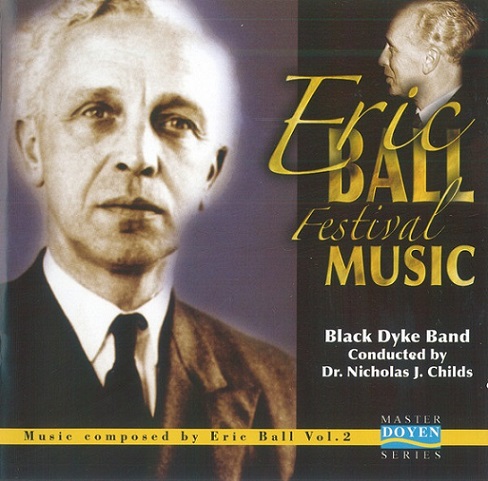
Black Dyke (2003)
Eric Ball - Festival Music
Conductor: Dr Nicholas Childs
DOYCD147
What marks this recording is not just the notable performance directed by Dr Nicholas Childs, but that you can also hear the composer giving his personal thoughts on the inspiration behind the work.
That comes from a talk given in 1968 (just a year after ‘Journey into Freedom’ was written) yet it holds as true today as they did then; violence and materialism; protest; human love; ephemeral pleasure and final transfiguration.
The MD has certainly taken his words (spoken in a light Dorset accent) to heart in an interpretation that draws on a broad, lyrical palette of colour and texture, drive and drama, but that also has a controlled brilliance and sense of bravura.
In that respect alone, Ball’s ‘wanderings’ (as referred to in a quoted poem by Johann Sheffler) have an immediacy here that makes for essential listening.
To enjoy and purchase: https://wobplay.com/
Enfield Citadel Band (2003)
Journey into Freedom
Conductor: Bandmaster James Williams MBE
SPS167CD
It’s always a delight to hear the musical approach taken by James Williams MBE to repertoire that you know must have been close to his heart.
His tenure at Enfield Citadel Band saw him develop them into one of the finest in the Salvationist world - a cultured structural balance and warm tonality balanced by rhythmic precision, topped by some of the finest lead solo lines of the era.
His is a surprisingly urgent ‘journey’ - perhaps reflecting on there being no time to lose in this, his second and final tenure at the band following his ‘retirement’ in 1997. He certainly imbues the opening with a mean-spirited drive.
Thereafter not a single phrase is wasted, or emotional gesture misplaced: It is only when we reach the ‘love theme’ (with a yearning cornet and tuba) do we see the reflective sunlight uplands, followed by a frothy waltz and a superbly paced and balanced build to the climax.
To enjoy and purchase: https://wobplay.com/



